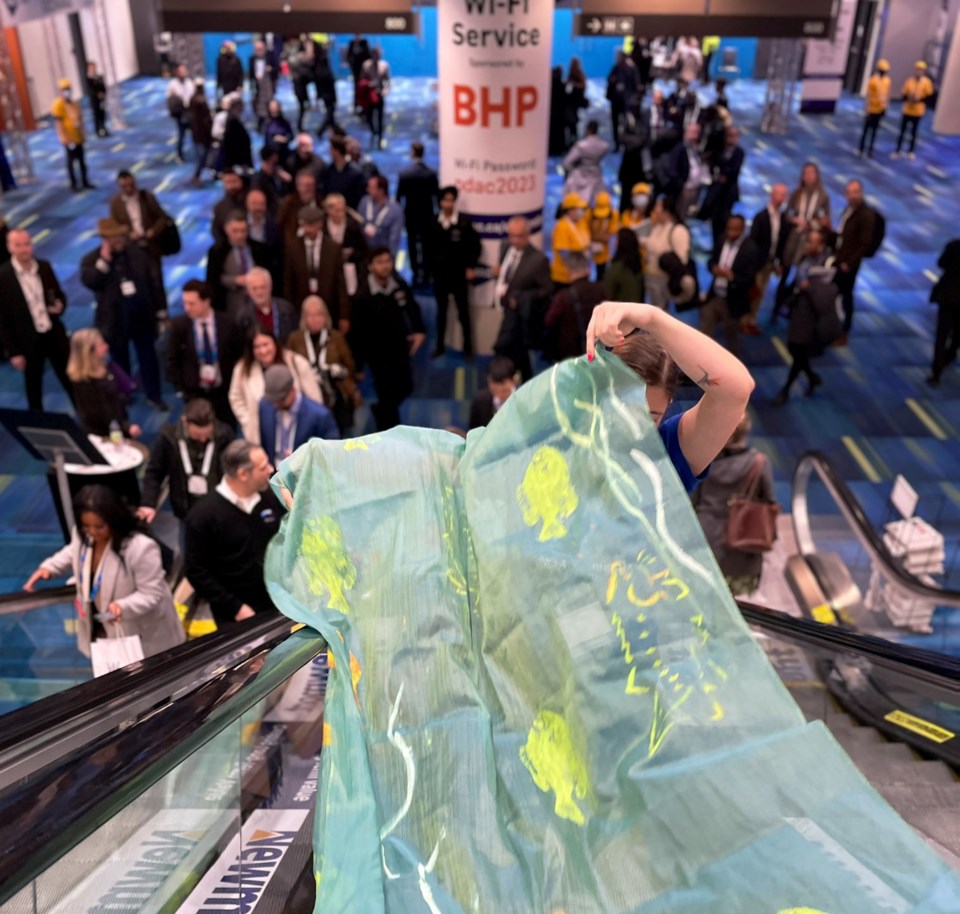The expansion of the mining into ecologically sensitive areas will do nothing to address climate change, said anti-industry activists who — briefly — attended the PDAC mining convention on the weekend.
Not long after members of the Mining Injustice Solidarity Network unfurled their fish-adorned blue banner than security at the Metro Convention Centre “physically and violently” expelled them for blocking access to trade show booths and the battery of escalators inside the venue, said a news release posted by MiningWatch Canada.
Federal and provincial cabinet ministers are talking about the looming global demand for critical minerals and are pledging to work better together to fast-track more mines into production. But activists contend given the industry’s track record of harming watersheds, to think that more mining will address the climate crisis is a “false solution.”
The expansion of mining into greenfield areas to pursue the metals needed for battery storage, wind and solar technologies comes at a cost, they said.
Environmental sensitive places, that include the Ring of Fire mineral belt in Ontario’s James Bay region, are “critical for regulating the climate.” Mining in the Far North could disturb the vast peatlands, a natural storehouse of about 35 billion tons of carbon in one of the world’s largest wetlands.
The Mining Injustice Solidarity Network further maintain the federal government’s draft terms of reference for a regional assessment have been written up without respecting Indigenous decision-making protocols.
“What is being promoted during PDAC 2023 will have lasting and global impacts, including a deepening of resource extraction in the midst of a climate crisis,” said Merle Davis, an organizer with the Mining Injustice Solidarity Network, in a statement.
“We must organize to protect ecologically sensitive and culturally significant places: the Attawapiskat river, Peehee Mu’huh, the Pacific Ocean, and beyond. Real action to address the climate crisis requires less mining, not more.”
Davis said it can’t be “‘business as usual’ — and that means disrupting PDAC.”
In the release, the Mining Injustice Solidarity Network and its allies take issue with “massive government investments” into the industry for mining and processing critical minerals like lithium, nickel, copper, graphite and cobalt considering “decades of environmental deregulation” and done at the expense of gutting “already weak protections safeguarding the environment and respecting Indigenous rights.




